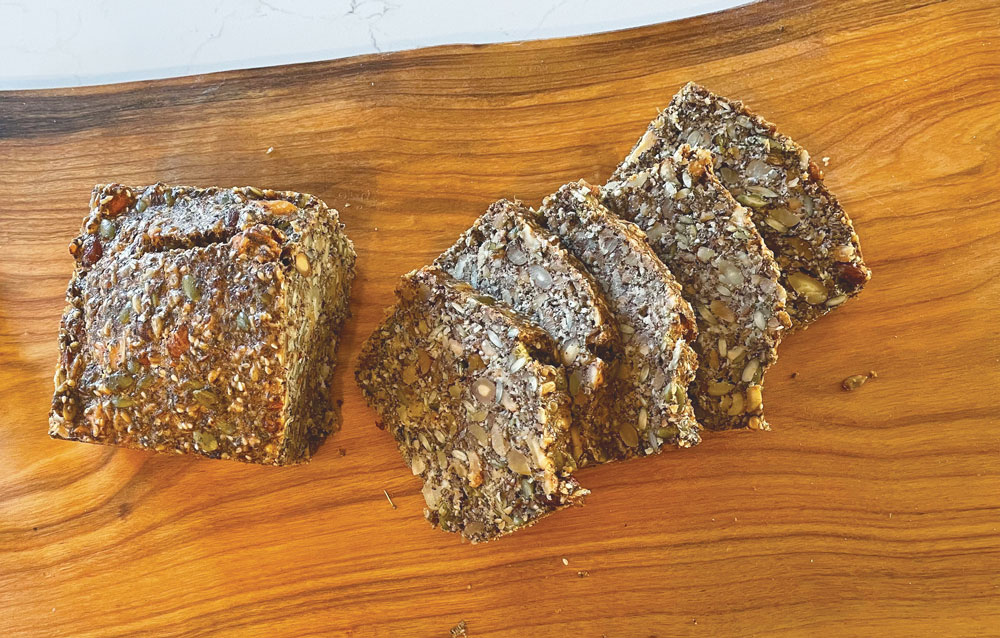Seeds are not just for the birds
Article and photo by Lisa Nicklanovich

Seeds are powerhouses of vitamins and minerals. This flourless protein bread contains a combination of many different types of seeds and nuts along with eggs. Toast a slice and top with avocado for a hearty snack.
Seeds may be little but they pack a mighty punch of health benefits. Seeds contain all the starting materials necessary to develop into complex plants, so it makes sense that they are extremely nutritious.
Overall, seeds are great sources of fiber. They also contain healthy monounsaturated fats, polyunsaturated fats and many important vitamins, minerals and antioxidants. According to healthline.com, when consumed as part of a healthy diet, seeds can help reduce blood sugar, cholesterol and blood pressure. Here are six super seeds to experiment with:
Flax seeds are nutritional superstars. They are rich in omega-3 fatty acids, phytoestrogens (a type of natural hormone replacement, to a limited extent), fiber, protein and lignans which act as important antioxidants in the body. They may help fight heart disease, type 2 diabetes and cancer. Use ground flax seeds to get the most benefit.
Chia seeds are similar to flax seeds because they are also good sources of fiber and omega-3 fats, along with a number of other nutrients. Chia seeds are effective at lowering blood sugar and reducing risk factors for heart disease. Studies are showing chia seeds reduce appetite and that they may reduce inflammation.
Technically nuts, Hemp seeds are one of the few plants that are a complete protein source, meaning they contain all the essential amino acids that our bodies need. While the terms are often used interchangeably, hemp “hearts” are hemp seeds that have had their shell removed, so they’re easier to consume. Hemp seeds can contribute a slightly sweet and nutty flavor as well as texture to many dishes.
Sesame seeds are the best-known dietary source of lignans, important antioxidants. Plant compounds and vitamin E in sesame seeds combat oxidative stress in the body. Sesame seeds are high in magnesium, which may help lower blood pressure. Un-hulled sesame seeds are especially rich in nutrients vital to bone health, including calcium. Soaking, roasting, or sprouting sesame seeds can improve absorption of these minerals. Additionally, use sesame seed butter, also known as tahini, in place of peanut butter or hummus.
Pumpkin seeds are good sources of phosphorus, a mineral needed to build strong healthy bones, monounsaturated fats which support good cholesterol and omega-6 fats which reduce the risk of heart disease.
Sunflower seeds contain a good amount of protein, monounsaturated fats and vitamin E which supports healthy aging and immunity and may help reduce cardiovascular disease.
Seeds are an easy way to add healthy nutrients to one’s diet; they can be added to salads, yogurt, oatmeal and smoothies, sprinkled over vegetables, stir-fries or soups, or even added to baked goods such as granola bars, breads, muffins and crackers.